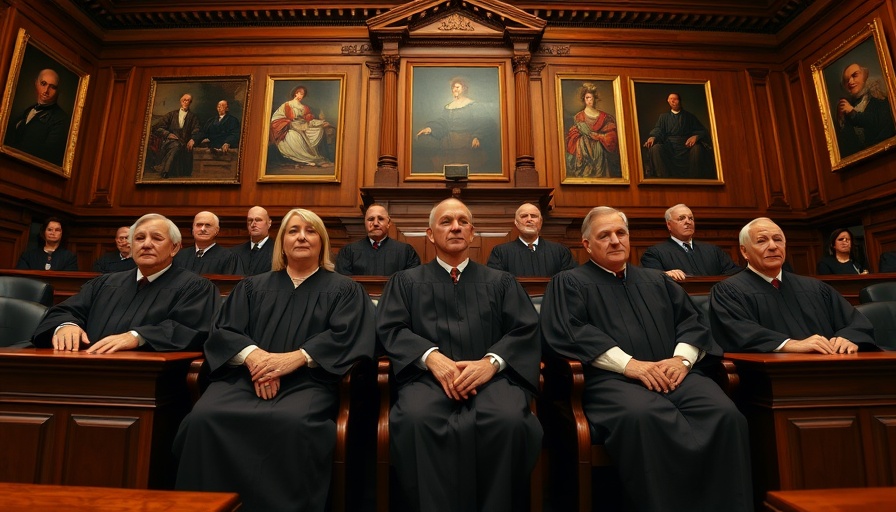
The Legal Controversy Surrounding RGGI in Pennsylvania
In the latest oral arguments before the Pennsylvania Supreme Court, justices grappled with an issue that could redefine environmental policy in the state: is the Regional Greenhouse Gas Initiative (RGGI) a tax, a fee, or something entirely different? The court's decision may significantly influence not just energy producers, but also residents and environmental advocates across Pennsylvania.
Understanding RGGI and Its Purpose
The RGGI is a regional initiative aimed at reducing carbon emissions from power plants in several northeastern states, including Pennsylvania. Under this program, power plant operators must purchase allowances to emit carbon dioxide, a greenhouse gas known for its detrimental effects on climate change. Advocates argue that RGGI provides necessary regulatory measures to combat atmospheric pollution and protect the environment. For instance, Thomas Hazlett, representing the Department of Environmental Protection (DEP), emphasized that the requirement to pay for carbon emissions aligns with the state's constitutional duty to manage air pollution effectively.
The Legal Arguments: Tax or Fee?
At the heart of the Supreme Court case is whether the payments mandated under RGGI should be classified as a tax or a regulatory fee. Opponents of the initiative assert that the DEP's actions constitute an unlawful tax, one that violates constitutional provisions. As Brigid Landy Khuri argued on behalf of state Republicans, the agency has exceeded its authority by implementing a program that significantly impacts the electric generation system without explicit approval from the General Assembly.
Environmental Impact: The Side of Advocates
On the opposite side, environmental groups maintain that the DEP's mandate is vital for protecting public resources, particularly clean air. Jessica O’Neil, representing a coalition of environmental organizations, referred to air quality as a public trust resource, affirming that every entity involved is constitutionally obligated to safeguard it. The argument underscores the urgent need for regulatory frameworks to address climate change while balancing economic interests and public health.
A Broader Context: The Future of Pennsylvania's Energy Landscape
This case reflects a larger trend of shifting energy policies, as states explore various pathways to address climate change. With growing concerns regarding fossil fuel reliance and environmental degradation, initiatives like RGGI may set precedents that could transform energy production across the region. As states collaborate on reducing carbon emissions, Pennsylvania’s decision on the RGGI framework could lead to further regulatory shifts nationwide.
Catalyzing Change: What This Means for Residents
For Pennsylvania residents, the implications of the court’s ruling extend beyond regulatory frameworks; it directly impacts energy prices and environmental health. The potential increase in costs for energy producers suggests that consumers may bear the brunt of compliance through higher utility bills. As such, residents have a vested interest in understanding how policies like RGGI shape their daily lives and future energy access.
Conclusion: A Call for Awareness and Advocacy
As the Pennsylvania Supreme Court deliberates on the requirements and implications of RGGI, the necessity for informed public discourse remains critical. Whether deemed a tax or a fee, the program represents a significant step toward addressing climate issues within the state. Residents should remain engaged in these discussions to ensure their voices are heard in shaping Pennsylvania's environmental and economic future.
Stay informed about the developments surrounding RGGI and its implications for energy policy in Pennsylvania. Engaging in local discussions and advocating for sustainable practices can help create a balanced approach to climate action.
 Add Row
Add Row  Add
Add 




 Add Row
Add Row  Add
Add 

Write A Comment